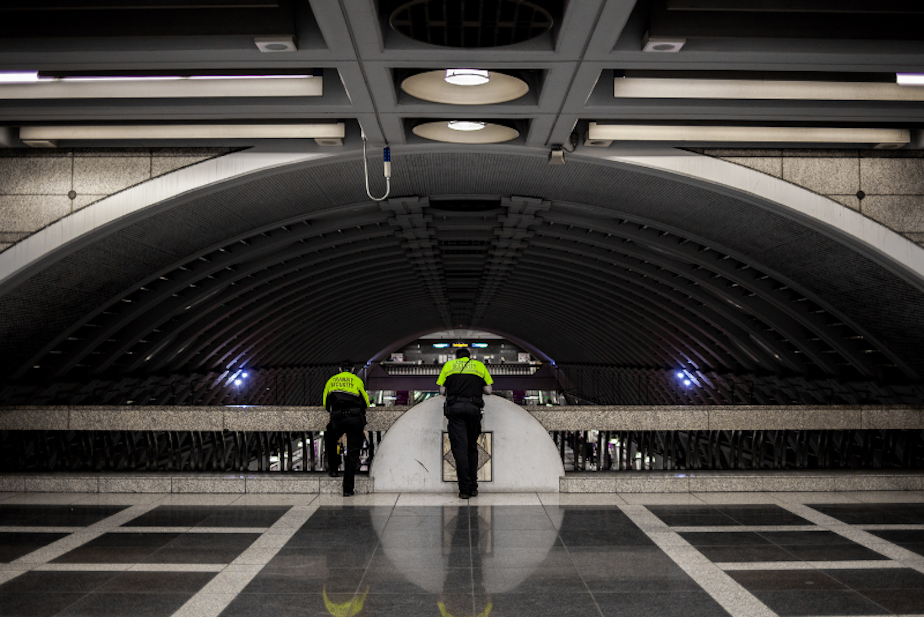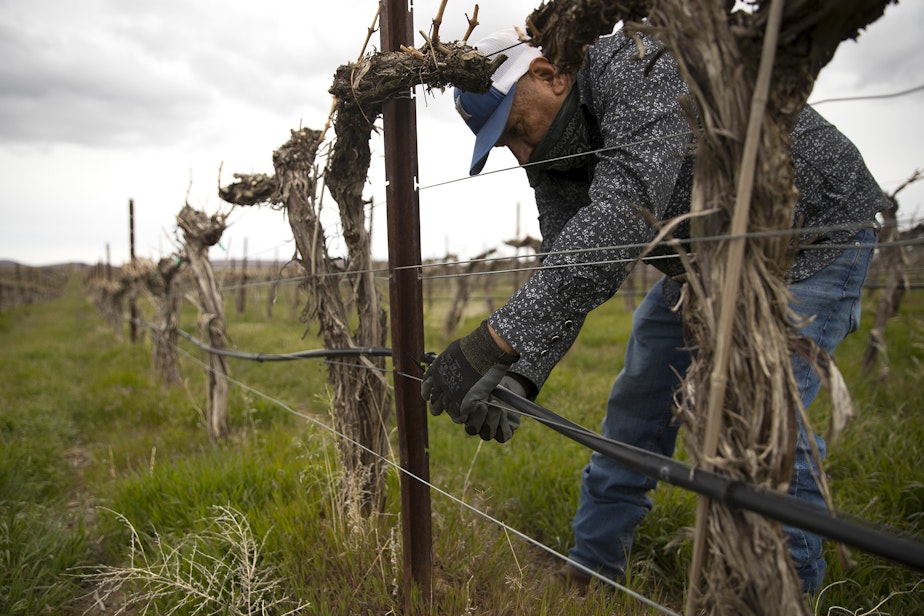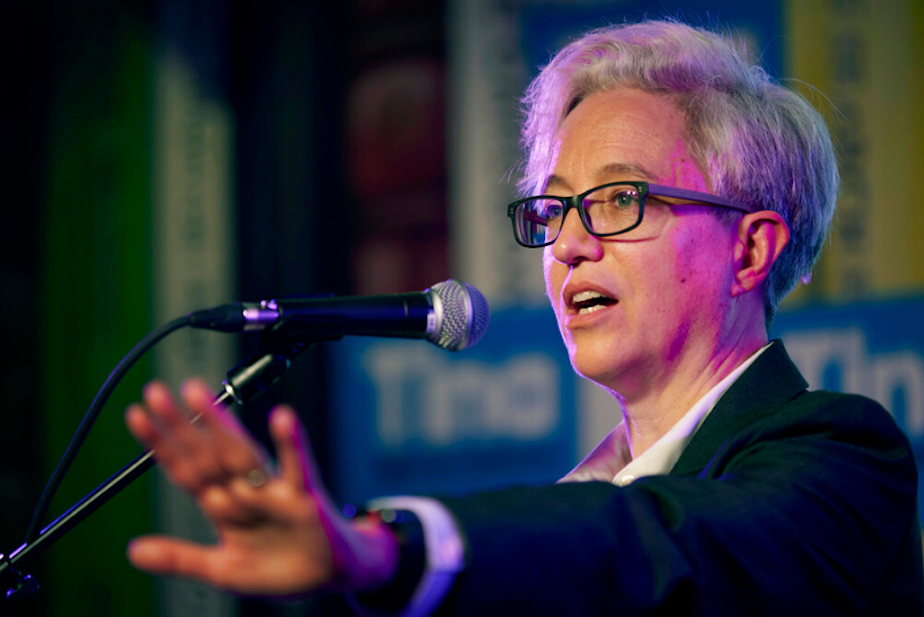Sound Transit has a few new rules: Today So Far

- Sound Transit has a few new rules to enforce its fares.
- Seattle schools have a problem — not enough bus drivers.
- King County officials believe they've solved a lead contamination mystery.
This post originally appeared in KUOW's Today So Far newsletter for May 18, 2022.
Seattle schools have a problem — not enough bus drivers. About 50 routes are suspended this year. One potential solution for the next school year that was under consideration was spreading out the start times for certain student groups. That way, a bus could drop off one group, and then head out to pick up more. It would have meant three different start times for Seattle. But that idea was just nixed by Seattle Public Schools Superintendent Brent Jones. Parents weren't too into the idea, which would have some students riding home in the dark winter hours after 4 p.m. Others said it would make things difficult if families had one student on one schedule, and an older student on another.
The main message to parents is that start times will stay the same next year, however, bus routes are still going to be limited. Read more here.
Come September, fare dodgers on Sound Transit could find that the free ride is more expensive than they thought. That's when Sound Transit intends to start cracking down on folks who don't pay. The agency approved new rules in April. If a person is caught without paying three times, they could face a $124 fine. If they don't pay that by the fourth offense, they could be sent to collections. A fifth offense could lead to a misdemeanor charge.
It's among a few changes Sound Transit is phasing in. This week, Sound Transit is shifting to a new ORCA card system. Your old cards will still work. But the new system allows riders to add money via their smartphone. Also, there is a new $1 rate for low-income riders. Read more here.
King County officials believe they've solved a lead contamination mystery. Health officials noticed that the area's Afghan refugee community had higher levels of lead in their blood. A new study has traced that contamination to pots and pans they brought with them. But the findings didn't stop there. Lead contamination was also found in pots and pans sold online, such as through Amazon or Etsy ... so like that mini-pan I bought online for camping. One theory is that a lot of these overseas pans are sometimes constructed out of scrap metal which can have contaminants.
KUOW's Ruby de Luna has the story here.
AS SEEN ON KUOW

A worker adjusts an irrigation system for grape vines at Two Mountain Winery in Zillah, Wash. The changing climate and its unpredictability has created new challenges for growers. It’s one of the many reasons why vineyards around the state are adopting practices that make their grape crops more resilient. (Megan Farmer / KUOW)
DID YOU KNOW?
The official song of the city of Seattle is “Seattle, the Peerless City.” A local lawyer, and poet, by the name of Arthur O. Dillon wrote the song. According to an old photo of the music book, it was a “march song.” In 1909, he urged the City Council to adopt the song as the city’s official anthem. The city’s finance committee gave it a thumbs up on the condition that Councilmember Sawyer sing it in front of the Council. He must have because the Council eventually approved it and placed it in the city charter.
Like most official songs in our state, this one is pretty dated. A lot of music has sprouted from our city since then. So I feel like we have some options for a more modern song. That Perry Como “Seattle” song is a little too obvious. “I Love Seattle” by Tacocat is a pretty straightforward example. It’s a long shot, but I’d also like to throw my support behind Sir Mix-A-Lot’s “Seattle Ain’t Bulls****in’.” And I wouldn’t be opposed to “Tossed Salads and Scrambled Eggs,” the theme song for Frasier.
ALSO ON OUR MINDS

Tina Kotek is on the precipice of making history following her win in Oregon's Democratic gubernatorial primary Tuesday.

